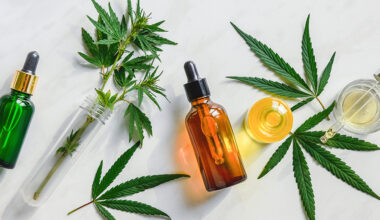If you’ve been considering trying delta 8 THC, you’re not alone. Since the passage of the 2018 Farm Bill, which legalized hemp products with less than 0.3% CBD, sales of hemp-derived CBD products have skyrocketed. However, it’s important to note that many cannabidiols are derived from marijuana plants and can contain trace amounts of Delta 9 THC—the compound responsible for the traditional cannabis high—which is what has made legal issues surrounding CBD so confusing. But there’s a different compound in both marijuana and hemp plants that could soon take center stage: delta 8 tetrahydrocannabinol (Delta 8 or Δ8THC).
Delta 8 THC is derived from the hemp plant
Delta 8 THC, also known as cannabidiol (CBD), is a cannabis extract derived from the hemp plant. Delta 8 THC has been shown to have many potential health benefits, including pain relief and reduced inflammation. While it’s legal in most states, some countries still consider it an illegal substance and restrict its use or sale.
It’s legal in most states
The legal status of Delta 8 THC is an important consideration for anyone looking to use it. Thankfully, it’s available in most states and countries.
- In all US states with a medical marijuana program, Delta 8 THC is legal for medicinal purposes. Many of these states also allow non-medical use under certain conditions.
- In Canada, where recreational cannabis became legal on October 17th, 2018, Delta 8 THC is legal for medicinal purposes only at this time. However—and this is very important—there are rumors that the government may move towards making CBD products (including Delta 8 THC) accessible to all Canadians by 2020 or 2021.*
You can consume it many ways
There are several ways to consume Delta 8 THC and each method offers its own pros and cons. For example, vaping is a great way to enjoy the benefits of Delta 8 THC without inhaling smoke or other harmful substances into your lungs. However, if you don’t have access to a vaporizer or don’t want to purchase one there are other options available such as edibles or tinctures which can also be used in cooking recipes.
Other methods include topical creams (used on areas of the body like skin or muscles), sprays (which allow for quick absorption into the bloodstream), sublingual (underneath your tongue for fast absorption), gummies, brownies, and cookies that are infused with Delta 8 THC oil/extracts, beverages such as tea/coffee/juices with added CBD oils, etc..
Delta 8 is fast-acting
You’ve probably heard of Delta 8 THC, but you may not know exactly what it is or how it works. The short answer is that Delta 8 THC is a derivative of THC and CBD (and other cannabinoids), and it’s fast-acting because it’s derived from these compounds. This means that you will feel the effects of this cannabinoid quickly.
Delta 8 THC has some fantastic benefits for treating various conditions—but because its chemical structure is similar to other cannabinoids, there are also some drawbacks to consider before taking this medication. Let’s take a look at what we know about Delta 8 so far!
It has distinct health benefits
Delta 8 THC is a specific variety of cannabis that has distinct health benefits. As the name suggests, delta 8 THC is a type of tetrahydrocannabinol (THC) that has been modified in order to increase potency. Because it’s stronger than ordinary THC, this compound can be used for a wider range of medical purposes. For example:
- It can help you relax and ease stress
- It can relieve pain related to different conditions
- It can help with nausea and vomiting caused by chemotherapy or HIV/AIDS treatments
Conclusion
We hope this has been a helpful and enlightening resource for you. As you can see, there are many great benefits to this cannabinoid. It’s important to talk to your doctor if you have any questions or concerns before taking it. If they sign off on it, then using Delta 8 THC is certainly a great option!
Medical Disclaimer:
The information provided in these blog posts is intended for general informational and educational purposes only. It is not a substitute for professional medical advice, diagnosis, or treatment. Always seek the advice of your physician or other qualified healthcare provider with any questions you may have regarding a medical condition. The use of any information provided in these blog posts is solely at your own risk. The authors and the website do not recommend or endorse any specific products, treatments, or procedures mentioned. Reliance on any information in these blog posts is solely at your own discretion.






